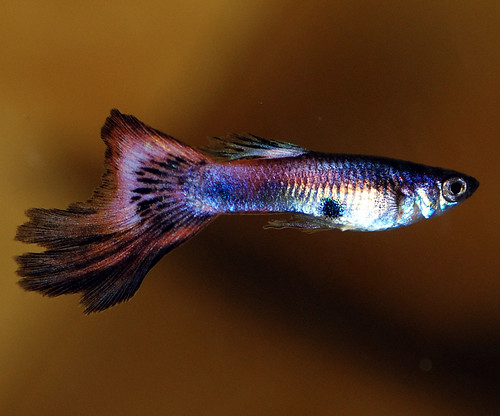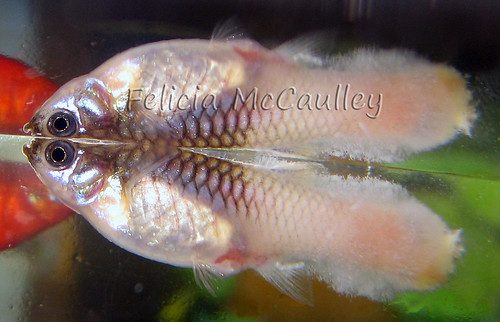
I added the two new females after a long, careful acclimation. I didn't bother to quarantine them, after all, they're only guppies, right? Wrong. Less than two days later, the new guppies looked like this:

I removed them to a quarantine tank, but they were too far gone. I started doing heavy water changes and maintaining a salt level of about .2% (about one teaspoon per gallon) using freshwater aquarium salt. Within days, my favorite guppy and a number of my other livebearers had succumbed to the disease. I also dosed with Mela Fix, though I'm not sure how effective it was. Perhaps without it, the mortality rate would've been higher. Everyone else has since recovered, but when I added some healthy new fish last month from a private breeder I trust, a few of them contracted what I suspect was columnaris and died shortly after I put them in the tank. Columnaris can stick around for a long time, even though my other fish are not showing symptoms.
Columnaris, Flavobacterium columnare (formerly known as Flexibacter columnaris) is a gram negative bacteria that is not easy to treat. I don't like to use medications, but some popular medications for curing Columnaris are Acriflavine, Furan, and low doses of Formalin. Neomycin and many common antibiotics are not effective. Medications must be used in quarantine tanks because the medications kill the aquarium's ammonia-eating bacteria. Ammonia is much easier to control in a bare tank than in a display tank containing substrate. If you have more than one tank, be careful not to cross contaminate with fish nets, hands, or specimen containers.
If you have any suggestions or questions, feel free to leave a comment. If you've had a Columnaris outbreak in your aquarium and successfully treated it, I'd love to hear from you!

good job done guys... very nice blog.... very interesting and knowledgeble... hope you will post newer content in coming days..
ReplyDeletediscus fish care and
This is sort of similer when my guppy had fin rot. I was too young to relize it was fin rot so it died a few days later. Poor Guppy. Nice post and blog.
ReplyDelete